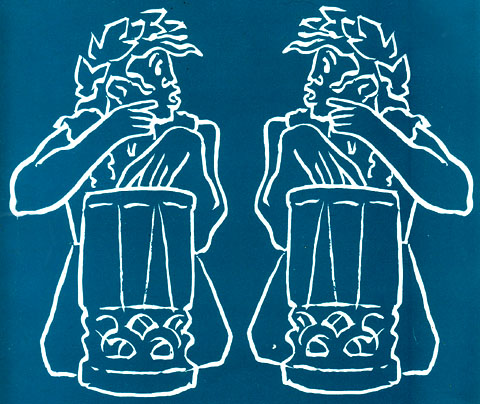by Juan Wilson & Linda Pascatore
12 March 2007 - La Umi-kuma-lua o Malaki, 'Elua Kaukani me 'Ehiku
This
series is derived from adult education classes in conversational
Hawaiian given by the Kauai District of Education at Waimea High School
by Kumu (teacher) Kamakua Kahale. She is a young Niihauan who speaks
fluent Hawaiian.
See the introduction article for conventions we are using relating punctuation and spelling: Island Breath: Hawaiian Language Intro
In
class #3 we examined pronouns and particles. In Hawaiian the pronouns
are more complicated and subtle than in English. A simplified list is
repeated below:
au = I (singular subject)
ko’u = mine
'oe = you (singular)
kou = your (singular)
'oia = he/she, his/her (singular)
ka-kou (ka-kolu) = we, our "all of us" (inclusive plural)
'ou-kou (ou-kolu) = you, your "you guys" (plural - more than two)
la-kou (la-kolu) = they, their "those guys" (plural - more than two)
Another
element of Hawaiian speech we need to know is the words used in
reference to the space in which a conversation is taking place.
ke-ia = within my reach, in my space
ke-na = within your reach, in your space
ke la = out of our reach, outside our space
Before we learn how to phrase simple questions, let us add a few more words of vocabulary.
VOCABULARY
'ai = yes, agree, yield
'a'ole =no, not, to not have
mai-kai = good
kama = sad
ma'i = sick
luhi = tired
mea = thing
ke'ia la = today (ke'ia = all, la = sun)
'E = Hey! (to get attention, as before a question)
'O = Oh, (as in addressing someone "Oh, Keone")
no = very (an instensfier)
kala = color (English phonetic)
puke = book (English phonetic)
peni = pen (English phonetic)
pepa = paper (English phonetic)
We will now learn how to ask some simple questions about people and return simple answers. The first is a simple greeting.
pehea = how
QUESTION:
Pehea oe, i ke'ia la? = How are you, today?
ANSWER:
Mai-kai no au, i ke'ia la. = Very good I am, today.
or just Mai-kai! = Good!
QUESTION:
Pehea ou-kou? = How are you guys?
ANSWER:
'A'ole mai-kai ka-kou.= Not good is how we are.
Luhi ka-kou! = We're tired!
We
will now ask a few questions about things. These phrases will be in a
parallel format for both the question and answer. The suffix use of "aha" indicates the question form.
he = what
QUESTION:
He aha (What is that) ke-na (by you) =
What is that in your reach?
ANSWER:
He (That is) ka puke (the book) ke-ia (by me)?
= That is a book within my reach.
QUESTION:
He aha ke kala (the color) o ka puke (of the book) ke-na? =
What is the color of the book next to you?
ANSWER:
He ke kala o ka puke polu (blue) ke-ia? =
The color of the book is blue that is by me. or
He ka puke polu. = That is a blue book.
QUESTION:
E, Linda, he aha mea (thing) kena (there) maluna (atop) pepa?
Hey, Linda, what is that thing by you on top of the paper?
ANSWER:
He ke peni (a pen) maluna pepa ke-ia (here) ?
That is a pen on top of the paper right here.
noke = why
QUESTION:
Noke aha puke ke-la (there) ? = Why is that book over there?
ANSWER:
Noke puke ulaula (red) ke-la. = Because the book over there is red.
Hawaiian Online Dictionary http://www.wehewehe.org/
|


